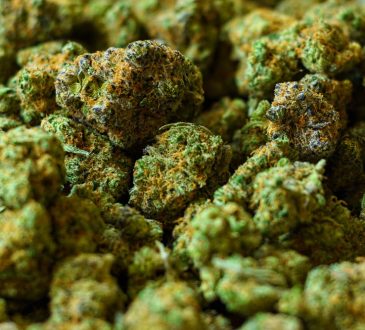
In the world of fitness and bodybuilding, the terms “peptides” and “steroids” are often used interchangeably, leading to confusion among enthusiasts and even some experts. However, it’s crucial to understand that peptides and steroids are distinct compounds with unique properties and effects on the human body. This article aims to shed light on the differences between peptides and steroids, providing clarity for those seeking to optimize their fitness regimens,for more info click here.
Peptides: The Building Blocks of Proteins
What Are Peptides?
Peptides are short chains of amino acids, which are the building blocks of proteins. These molecules play a crucial role in various physiological processes within the body. They serve as messengers in cellular communication, influencing functions such as hormone production, immune response, and muscle growth.
How Do Peptides Work?
Peptides work by binding to specific receptors on cell surfaces. Depending on the type of peptide, this binding can initiate various cellular responses. For example, some peptides stimulate the release of growth hormone, leading to enhanced muscle growth and recovery. Others may have anti-inflammatory properties, aiding in the recovery process after intense physical activity.
Common Peptide Types
- a) Growth Hormone Releasing Peptides (GHRPs) b) Hexapeptides c) Tetrapeptides d) Oligopeptides
Steroids: Synthetic Hormones
What Are Steroids?
Steroids are synthetic compounds designed to mimic the effects of naturally occurring hormones in the body. They are known for their potent anabolic (muscle-building) and androgenic (masculinizing) properties. Anabolic steroids, in particular, have gained popularity among athletes and bodybuilders for their ability to promote muscle growth and enhance performance.
How Do Steroids Work?
Steroids work by binding to specific receptors in cells, influencing the cell’s behavior. Anabolic steroids, for example, enhance protein synthesis, leading to increased muscle mass. However, it’s important to note that the misuse of steroids can lead to a range of serious health issues, including hormonal imbalances, liver damage, and cardiovascular problems.
Common Steroid Types
- a) Testosterone Derivatives (e.g., Testosterone Enanthate, Testosterone Cypionate) b) Nandrolone Derivatives (e.g., Deca-Durabolin, Nandrolone Phenylpropionate) c) Boldenone Derivatives (e.g., Equipoise)
Peptides vs. Steroids: Key Differences
Mode of Action
Peptides primarily influence cellular communication, regulating processes like hormone production and immune response. Steroids, on the other hand, mimic natural hormones and directly affect protein synthesis and muscle growth.
Safety and Side Effects
Peptides are generally considered safer with fewer reported side effects compared to steroids. Steroid misuse can lead to a range of health issues, making them a controversial choice for performance enhancement.
while both peptides and steroids play a role in optimizing fitness regimens, they are distinct compounds with unique modes of action and effects on the body. It is crucial for individuals to understand these differences in order to make informed decisions about their fitness journey. Consulting a healthcare professional or fitness expert is advised before incorporating either peptides or steroids into a regimen. Remember, safety and health should always be the top priorities in any fitness endeavor.
- FAQs
Q: What are peptides?
A: Peptides are short chains of amino acids, which serve as the building blocks of proteins. They play a vital role in various physiological processes within the body, including hormone production, immune response, and muscle growth.
Q: How do peptides work?
A: Peptides work by binding to specific receptors on cell surfaces. Depending on the type of peptide, this binding can initiate various cellular responses. For example, some peptides stimulate the release of growth hormone, leading to enhanced muscle growth and recovery.
Q: What are common types of peptides?
A: Common types of peptides include Growth Hormone Releasing Peptides (GHRPs), Hexapeptides, Tetrapeptides, and Oligopeptides.
Q: What are steroids?
A: Steroids are synthetic compounds designed to mimic the effects of naturally occurring hormones in the body. They are known for their potent anabolic (muscle-building) and androgenic (masculinizing) properties.
Q: How do steroids work?
A: Steroids work by binding to specific receptors in cells, influencing the cell’s behavior. Anabolic steroids, for example, enhance protein synthesis, leading to increased muscle mass. However, it’s important to note that the misuse of steroids can lead to a range of serious health issues.
Q: What are common types of steroids?
A: Common types of steroids include Testosterone Derivatives (e.g., Testosterone Enanthate, Testosterone Cypionate), Nandrolone Derivatives (e.g., Deca-Durabolin, Nandrolone Phenylpropionate), and Boldenone Derivatives (e.g., Equipoise).
Q: What are the key differences between peptides and steroids?
A: Peptides primarily influence cellular communication, regulating processes like hormone production and immune response. Steroids, on the other hand, mimic natural hormones and directly affect protein synthesis and muscle growth.
Q: Which is considered safer, peptides or steroids?
A: Peptides are generally considered safer with fewer reported side effects compared to steroids. Steroid misuse can lead to a range of health issues, making them a controversial choice for performance enhancement.
Q: What should individuals consider before incorporating peptides or steroids into their fitness regimen?
A: It is crucial for individuals to consult a healthcare professional or fitness expert before incorporating either peptides or steroids into a regimen. Safety and health should always be the top priorities in any fitness endeavor.




